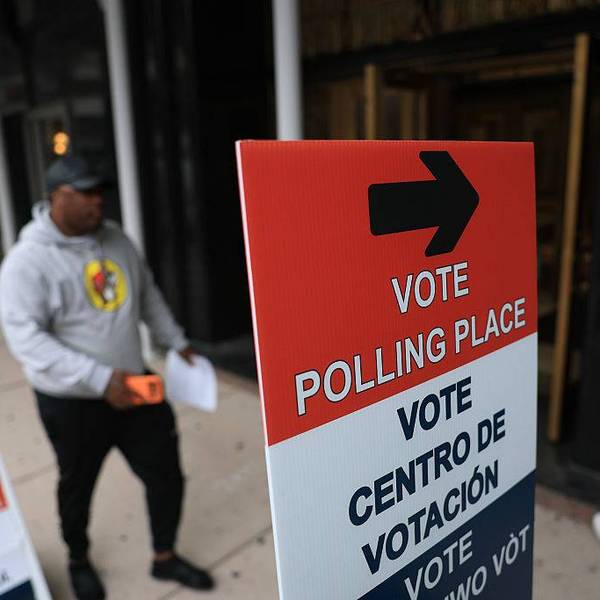Isn’t it wiping out our jobs, stealing our creativity, blurring fact and fiction with deep fakes, and pushing us into a dystopian future that will suck the humanity out of us all? Are we doomed?
For historian Yuval Harari and would-be politician Andrew Yang, AI will create self-driving trucks that will decimate the working-class. Peter Truchin, the mathematical historian, seriously imagines a future in which AI robots are used to colonize asteroids with new weapons that will allow a few powerful men, or maybe just one, to rule the universe.
Getta grip!
While inflammatory prognosticators predict that hundreds of millions of jobs will be gobbled up by AI, only 10,000 jobs were cut due to AI in the first seven months of 2025. That sure-to-be-slaughtered trucking industry is expected to experience an 11 percent total increase, not decrease, in truck drivers through 2030. It’s not at all clear that more jobs will be destroyed than created as AI spreads. Predictions of the unemployed roaming the streets due to automation haven’t yet occurred even during rapid periods of technological change. Why should this time be different?
Nevertheless, it’s entirely possible that a wide range of jobs will be dramatically impacted by AI. This wouldn’t be the first time. World War II also ushered in an amazing array of new technologies and production techniques to compensate for and cope with the vast needs of a war economy that was missing 17 million workers in the armed forces.
We seem in total awe of AI, falling on our knees before its vast power, while experiencing no power of our own to change the course of events.
But then, as opposed to now, Wall Street didn’t run the country, and we had a powerful labor movement that understood that vast productivity increases could lead to increased wages and shorter workweeks, not just job destruction.
Today, things are more than a little different. We seem in total awe of AI, falling on our knees before its vast power, while experiencing no power of our own to change the course of events. As a result, we aren’t even discussing how AI could and should be used to create a four-day work week without reduced pay.
Imagine for a moment that AI does have the potential to eliminate one-fifth of all jobs without new jobs filling the breach. Going to a four-day work week would make certain that unemployment would remain low, while tens of millions gain more time away from work without loss of pay. Mind-numbing work could be replaced. Work and home life could be enriched.
That kind of dream was alive and well when labor unions represented more than one out of every three private sector workers, instead of about one in 20 today. During and after WWII, labor unions were a force to be reckoned with. Government and corporate leaders understood that the fruits of productivity needed to be shared with working people or there would be big trouble in the form of mass strikes.
We no longer think these thoughts. We no longer have these discussions. We no longer imagine having enough power to make such substantive changes to our collective work lives.
In October 1955, a congressional committee held hearings on “Automation and Technological Change,” to deal with the unease the country felt about technological change. The report said what was obvious then but is totally absent from today’s AI hysteria.
“The prevailing workweek in manufacturing today, as is well known, is about 40 hours per week compared to about 45 in the mid-1920s and about 60 at the turn of the century. The hope is frequently expressed that the fruits of automation may permit us to reduce this still further to 30, 32, or 35 hours per week in the not-so-distant future.”
Not so distant future? That was written 70 years ago.
We no longer think these thoughts. We no longer have these discussions. We no longer imagine having enough power to make such substantive changes to our collective work lives. We expect the fruits of productivity to go entirely to the corporations and Wall Street – their reward for their great insights and ingenuity. (With the exception of Professor Juliet Schor, who is conducting research on the value of a four-day work week and helping corporations try it.)
And why? Because we have lost our collective will to power as expressed by labor unions. And our political representatives have allowed Wall Street to run wild all over us.
At this very moment, Wall Street and large corporations like Google, Facebook, Amazon, and Apple are killing tens of thousands of jobs to finance stock buybacks, the tool of choice to enrich the largest shareholders and richest executives. (For the data to prove that point see Chapter 11 of Wall Street’s War on Workers.)
Leveraged buyouts and stock buybacks have been killing tens of millions of jobs, not AI. And they will continue to do so until we have a political movement with the guts to take on high finance and protect the needs and interests of the rest of us.
As I will show in more detail in upcoming columns, the Democratic Party is not it. Working people want something new….and soon.




